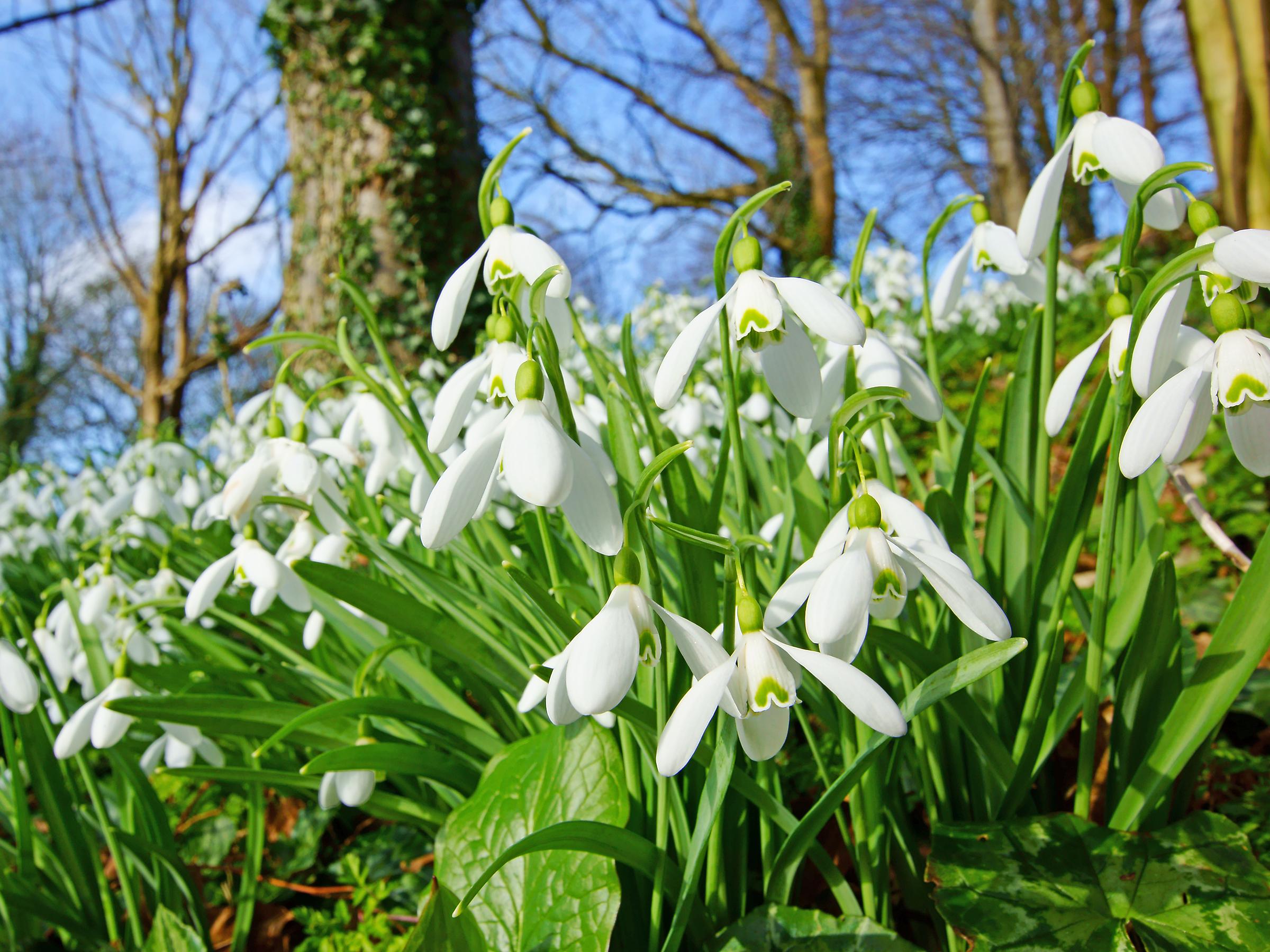Spring arrives in November as British wildlife responds to milder climate
'Data like this has continuously brought into question the way we think about the seasons, and to see spring in December no longer seems unusual'
The first signs of spring have arrived unusually early, with flowers blooming and insects appearing months before their scheduled arrival date as British wildlife responds to milder weather conditions.
Flowering snowdrops and singing thrushes were among the signals emerging towards the end of November, signalling warmer temperatures had triggered a premature shift in the seasons.
Sightings of butterflies and bumblebees over the festive period were particularly surprising, as these insects do not normally appear for another three to five months.
These tiny creatures were probably disturbed from hibernation, according to the Woodland Trust, as a white Christmas failed to materialise and overall temperatures were mild.
The conservation charity conducts an annual “Nature’s Calendar” survey based on information collected by members of the public.
This year it has received more than 60 records indicating plants and wildlife were continuing to respond to Britain’s unseasonably warm temperatures.
Met Office data suggests both November and December were more than 1C warmer than the average for the end of the previous century.
“Once again – despite being in the throes of January – flora and fauna are reacting to milder climates, and spring seems to have sprung early,” said Dr Kate Lewthwaite, citizen science manager for the Woodland Trust.
“We were far from a white Christmas, with hazel flowers and snowdrops being spotted by our citizen scientists across the country.”

Last year saw even more signs of an early spring, with more than 300 pieces of “unusual” data sent to the Woodland Trust.
This early appearance later proved problematic as the extreme weather that followed threw nature into turmoil.
The Beast from the East brought the early 2018 spring to an abrupt end, only for the heatwave to make berries ripen too early and harm the yield of many valuable crops.
Another cold snap that has been predicted for this year could place some of the more delicate species that have emerged from hibernation or bloomed prematurely at risk.
Dr Lewthwaite said the data collected by citizen scientists is helping experts better understand the wildly fluctuating conditions that many fear have become the new normal.
“Data like this has continuously brought into question the way we think about the seasons, and to see spring in December no longer seems unusual,” she said.
Scientists at the Met Office have predicted that as a result of climate change, summer temperatures could be up to 5C hotter by 2070.
This weather extreme during warmer months will be matched by up a 35 per cent uptick in rainfall during the winter over the same period.
Join our commenting forum
Join thought-provoking conversations, follow other Independent readers and see their replies
Comments